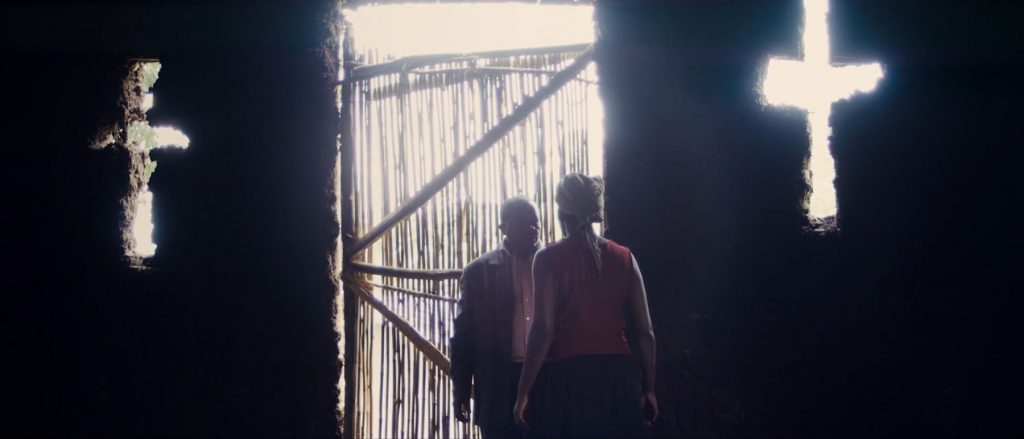Imperial Blue ’s detailed character work and sense of place is rewarding, if occasionally let down by its attempt at low-stakes fantasy.
To Hugo Winter (Nicolas Fagerberg), the American protagonist of Dan Moss’ Imperial Blue, Uganda is good for only one thing. Hugo, frequently stoned and hounded by debts he can’t pay, sees a potential money-making opportunity when he’s introduced to the fantastical drug Bulu, a navy substance only grown in Uganda, that allows its user to catch glimpses of the future. Hoping to turn prophecy into fortune, Hugo heads for Africa.
To Kisakye (Esteri Tebandeke, terrific in the role), Uganda is a home under threat; she finds herself locked in a battle for her late father’s village with the opportunistic Pastor Isaac (Andrew Benon Kibuuka). The sudden presence of Hugo and his none-too-noble intentions only serves to complicate things further for Kisakye, and their mutual goal to find and sell Bulu is quickly bound up in two disparate goals.
Imperial Blue ’s strengths, as helmed by Moss’ direction and anchored by a script co-written with frequent collaborator David Cecil, come easily from the divisions that undergird Kisakye’s story: notions of greed, religion, and invasion are all problematized by her initial conflict. With such a richly drawn character playing second fiddle to Hugo’s selfish, alien aims, it is at times difficult not to wish Imperial Blue was telling a slightly different story. There is a muddled message about outsider invasion here, but it’s unclear how willing the film is to critique, rather than empathize with, its major white figure.
Hugo is by no means painted as a strictly good man, but a handful of glib lines cut abrasively against an otherwise well-observed series of dialogues between a primarily Ugandan cast of talented film and theatre veterans. In fact, many of the film’s best moments either exclude the character entirely or see Kisakye and her family discuss the wariness they feel around him. There is a wonderful sense of place and internal conflict in these scenes, a local struggle and urgency that Hugo seems to be nearly blissfully unaware of. Whenever he does step into Kisakye’s conflict, it feels random and unmotivated.

Similarly, while the film succeeds in realist presentation, its fantasy elements feel imbalanced. The kind of muted fantasy Imperial Blue reaches for is certainly not impossible, and in fact there are shades here recalling the brilliant work of directors like Apichatpong Weerasethakul and Mati Diop. The problem doesn’t lie in the fantasy sequences specifically, which are formally quite impressive; deep blue filtered photography and listless, dreamlike camerawork accompany Hugo’s drug-induced future visions. The sequences simply chafe against the better-developed tension of Kisakye’s personal stake in a narrative that seems to run away from her all too readily.
Tebandeke shines as Kisakye in small moments of reactive interaction; empathetic but unsure of Hugo, resilient against Isaac, and exasperated with her sister (Rehema Nanfuka), Tebandeke is responsible for the brunt of the film’s conversational character explorations, and excels as its center. Also impressive is the subtle beauty in DP Ezequiel Romero’s images – handpicked details of lush forests, haunting tableaus within Pastor Isaac’s church, and the moody darkness of a city nightclub all describe visually contrasting settings that reinforce the film’s complex depiction of modern Uganda.
Imperial Blue is an intriguing work, showcasing the abilities of a talented cast and the burgeoning Ugandan film industry, but it remains an occasionally frustrating experience. Its genre trappings don’t work nearly as well as its sense of place and character texture, but guided by its considerable ambition, Imperial Blue is a minor miracle of low-budget ingenuity.
Imperial Blue is now available to watch on digital and on demand.

